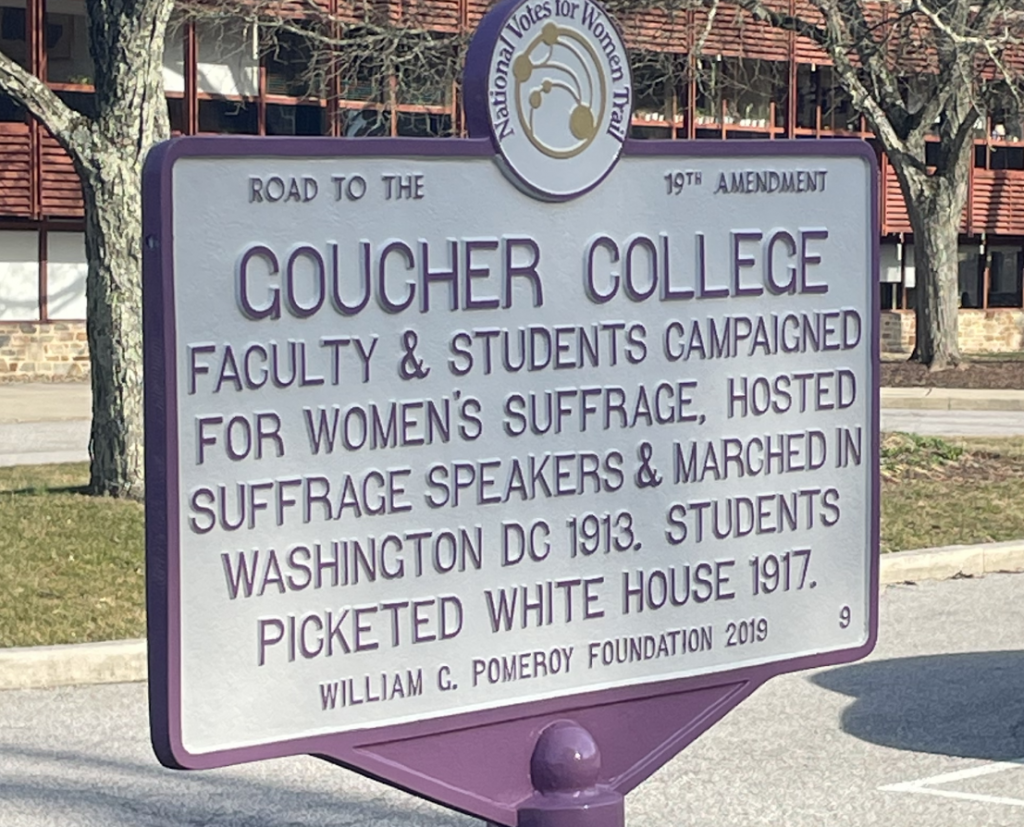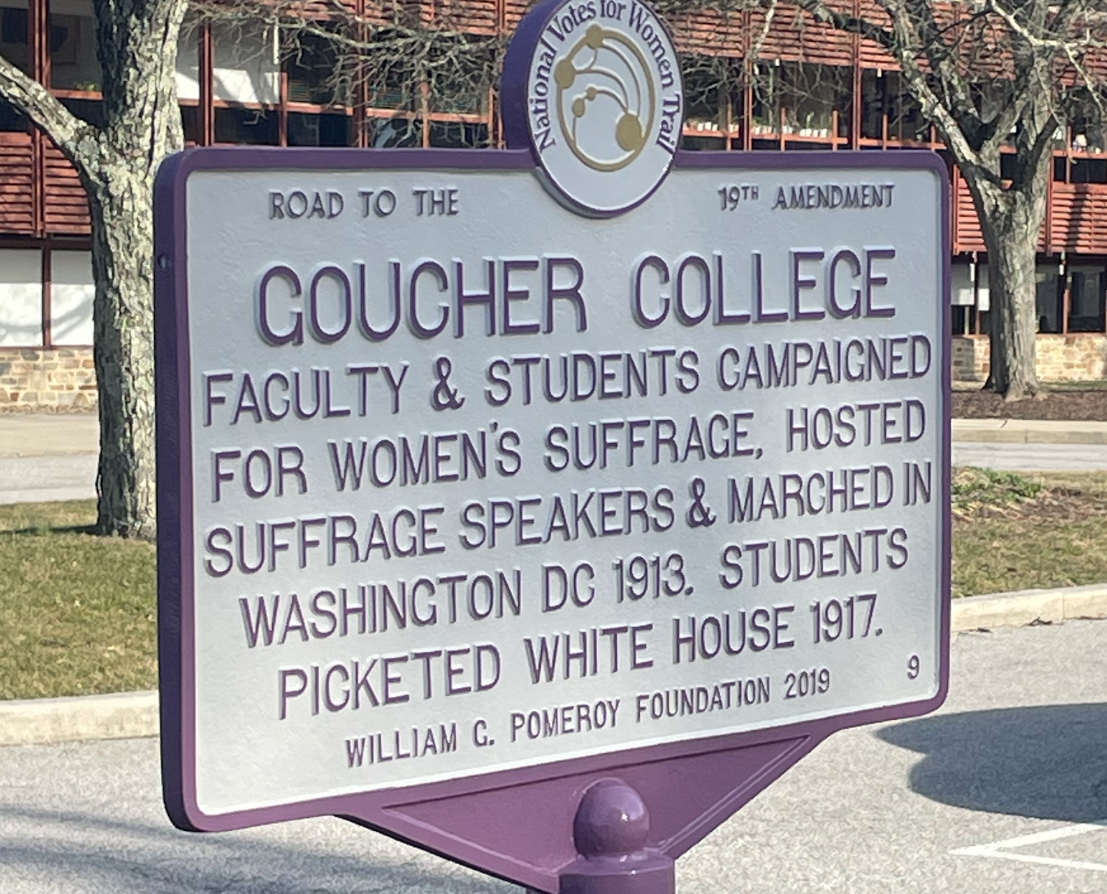By: Natalie Voorhees
*This article is a student submission from COM 142 News and Reporting with Dr. David Zurawik*
It all started when I came across this.

This is a photo I took of a sign displayed proudly outside the Dorsey Center describing the ways that Goucher students and staff were involved in the fight for the women’s vote in the early 1900s. We are proud, as we should be, of our alumni for being on the right side of history. Among all the recent protests and demonstrations – and the school’s disappointing response to them – seeing this sign made me wonder if it was always a struggle against the administration for students to advocate for their beliefs.
Goucher has been around a long time. The school was founded in 1885 as the Woman’s College of Baltimore, was female-only until 1986, and was officially named Goucher College in 1910, which was also the year that the student newspaper (then called the Goucher Weekly) was established. Any significant event or development that you can think of in the US occurring after the year 1910, Goucher has seen it.
For example, in February of 2017, a group of Goucher students left campus at 4:30 in the morning, and spent 9 hours in Washington D.C. protesting with the Women’s March. Students at this time were also involved in protests for various other causes in both D.C. and Baltimore, attended local lectures on topics surrounding Black History Month, and spoke out about self expression policies on campus. But one piece from this period that really stuck with me was from March 31, 2017, entitled “The Psychology of Climate Change” which dissects the bizarre tendency people have to ignore the science of climate change despite its legitimacy. Not only was this piece expertly written and researched, but it also forces the reader to confront their own behaviors and environmental consciousness, as well as raising important questions for how faculty and students of a college like Goucher can actively be a part of a global solution.
But we can also look back a bit further. During the Civil Rights Movement in the 1960’s, Goucher College students were involved in all kinds of forms of civil protests and demonstrations, including but not limited to: marching in Baltimore, attending peace conferences, hosting speakers on the subject, writing opinion pieces, and general advocacy in the public forum. But my favorite piece that I read from this time was from May 8th, 1964 called “Commitments to the Civil Rights Movement in Quiet Deeds Besides Demonstrations,” which described the NSM Project. The NSM (Northern Student Movement) had members from many colleges who were involved in the fight for equality, and typically did so, as with many other movements, through large scale actions and demonstrations.
However, one of its less obvious undertakings was a tutoring service for black students in Baltimore where students from Johns Hopkins University and Goucher College would tutor kids in various subjects. The tutors would also provide textbooks for the children that didn’t have any, and frequently paid for them out of their own pocket. In addition, there was a similar service for New York students called the Harlem Project that Goucher students also volunteered for. The article also detailed how a couple years prior to its publication (about 1961) one of the first few black women was admitted to the school. Her classmates had her back by contributing to the desegregation of Towson eating places. A sociology student polled local residents to see if they would still frequent their favorite eateries if they were desegregated. The results were an overwhelming 98% affirmative, and this proved to be the most effective in helping their cause.
To all readers, I hope that knowing that students of this institution in the past were so outspoken, compassionate, and forward thinking brings you the same comfort it does me. If you want to see more, I highly recommend looking at the archives of the student newspaper. Self expression is absolutely essential to democracy as well as to progressivism on any college campus, which is very evident from our school’s long history of activism.
To consider all this, and the positive societal change it brought on, it is astounding that posters now need a stamp of approval to be hung, or that limitations on demonstrations would only be increased in response to student activism. Fervent protest and advocacy for the reform of our system may seem dangerous to some minds, but it is infinitely more dangerous if young people don’t have strong opinions on the world we’re going to inherit. So to all who are protesting genocide, climate change, or any other cause you feel strongly about, I implore you – as any of our alumni would – to never stop.

